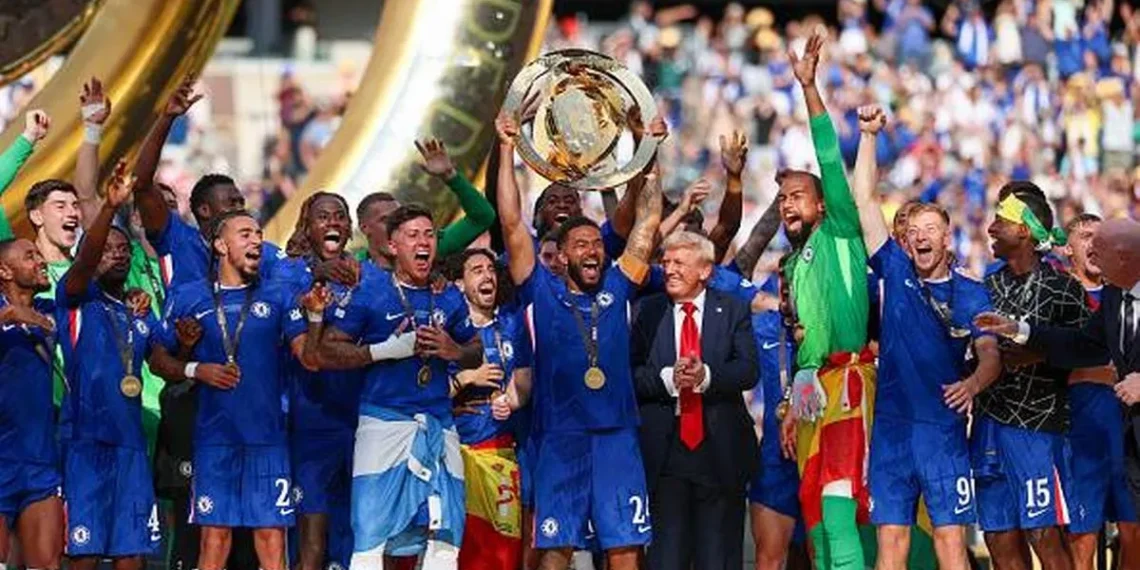Chelsea Football Club has once again stamped its authority on the global stage, lifting the prestigious FIFA Club World Cup for the second time in history. Their latest triumph came in the 2025 edition of the tournament, now rebranded and expanded, following years of transformation and controversy.
Despite early turbulence, including a shock group-stage defeat to Flamengo and widespread criticism of inconsistent officiating, Chelsea’s road to redemption ended in glory. Their dramatic win silenced critics and underlined their dominance in world football, fueled by standout performances across the squad.
This year’s FIFA Club World Cup marked a new era for the competition. Originally launched in 2000 as the FIFA Club World Championship, the tournament faced a major setback when FIFA’s marketing partner, International Sport and Leisure (ISL), collapsed. That disruption led to a four-year suspension between 2001 and 2004.
The event resumed in 2005 and ran annually until 2023. After that, FIFA overhauled the format, transforming it into a 32-team spectacle to be held every four years, with the 2025 edition in the United States marking its historic debut.
Chelsea’s 2025 campaign may have started with a stumble, but the Premier League giants quickly recalibrated, overcoming world-class opponents, including Paris Saint-Germain, who many expected to overpower the Blues with their fluid team play. Yet, Chelsea’s tactical discipline and hunger for victory proved too much, sealing a memorable final and sending their fans into euphoria.
Read also:
- Chelsea fans demand disciplinary action against PSG coach Luis Enrique
- Chelsea shock PSG with a 3-0 victory to claim FIFA Club World Cup
- PSG crushes Real Madrid 4-0 to reach FIFA Club World Cup Final, sets up showdown with Chelsea
The West London club’s latest success adds to their growing legacy. Having first won the Club World Cup in 2022, Chelsea now joins the elite list of teams with multiple titles. This year’s win was also the most lucrative in Club World Cup history, earning the Blues over £90 million (about $121 million) in prize money and commercial bonuses.
Beyond the silverware, Chelsea’s victory in the revamped tournament carries global significance. It highlights the club’s resilience, smart squad building, and tactical evolution in the face of football’s shifting dynamics. Rivals like Arsenal, Tottenham, and Leeds United may continue their domestic battles, but Chelsea has taken its fight to the world and won.
FIFA’s decision to reformat the tournament stems from its ambition to match the prestige of the UEFA Champions League, ensuring that clubs from all continents have a global stage. The new format, which now includes 32 teams and occurs every four years, mirrors the scale of the FIFA World Cup and is expected to generate billions in viewership and revenue.
As Chelsea hoist the FIFA Club World Cup trophy once again and don the coveted World Champions badge, the message is clear: the Blues are not just contenders, they are global conquerors.






